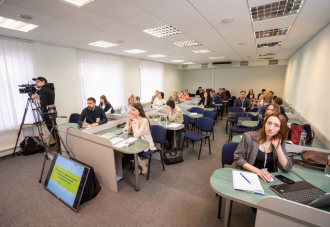This month FATF (Financial Action Task Force) released an update of Recommendation 8 and its Explanatory Note. It has also released an updated Best Practices Paper (BPP) to combat the abuse of NPOs for the purpose of terrorist financing.
The amendments to Recommendation 8 and the Explanatory Note are binding for Ukraine – therefore, they will directly affect the legal environment for CSOs. The state will take into account their requirements when assessing non-profit organizations for the risk of involvement in terrorist financing (FT). Related to this risk is the strengthening of financial monitoring measures, which for organizations often results in more complicated banking services and enhanced monitoring of organizations’ transactions.
The most important changes in these documents:
FATF no longer considers all non-profit organizations (NPOs) to be vulnerable to being used for FT purposes, but only recognizes that some NPOs may be used for FT purposes.
States are obliged to introduce targeted, proportionate and risk-based measures. However, in doing so, they should not impede the legitimate work of NPOs, but rather encourage them to be transparent and promote accountability.
States should understand the varying degrees of terrorist financing risk to NPOs and recognize that certain NPOs may be low risk, have internal regulatory countermeasures and controls to address the risk – or already operate under specifically legislated standards (in which case no additional measures are needed).
To read updates to Recommendation 8 and its Explanatory Note, please see this link: https://www.fatf-gafi.org/en/publications/Fatfrecommendations/Fatf-recommendations.html.
While BPP is non-binding (this is explicitly stated in the introduction), at the same time, one can predict its positive impact on NPOs in Ukraine. After all, it meets the public sector’s request for clarification of the specifics of applying the requirements of Recommendation 8 and the risk-oriented approach.
Let us note the below point of this document:
Organisations working in the not-for-profit realm, which are not in scope of the FATF functional definition, include organisations that primarily conduct research and/or advocate for changes in public policy but do not raise or disburse funds for NPO causes.
This effectively removes think-tanks from the FATF definition of NPOs, and consequently from the scope of Recommendation 8. Potentially, this relieves Ukraine of the obligation to assess them for the risk of their use for terrorist financing (and to oblige primary reporting entities – first of all, banks – to apply enhanced financial monitoring measures to such organizations).
It is difficult to predict whether the Ukrainian state sector will adopt this approach, but it is recommended for implementation to ensure an improved legal environment for CSOs.
You can read the BPP here: https://www.fatf-gafi.org/en/publications/Financialinclusionandnpoissues/Bpp-combating-abuse-npo.html.
This material was prepared by CEDEM as part of the Project Ukraine Civil Society Sectoral Support Activity implemented by the Initiative Center to Support Social Action “Ednannia” in partnership with the Ukrainian Center for Independent Political Research (UCIPR) and Centre for Democracy and Rule of Law (CEDEM).



